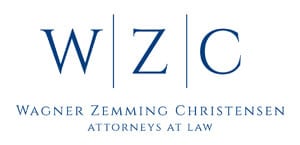Learning More About Sports-Related Concussions in California Schools

Learning More About Sports-Related Concussions in California Schools
Paying Closer Attention to Youth Concussions in Contact Sports
In recent years, more research has focused on the ways in which youth athletes can be at risk of short-term and long-term injuries resulting from sports-related concussions. In response to this research, several states that include California have changed state laws to make contact sports safer and to ensure that kids who may have sustained traumatic brain injuries (TBIs) are not permitted to return to play without a full medical evaluation. A recent report from NBC Los Angeles indicates that researchers in Southern California have begun “tracking literally every hit [to the head] in an effort to get a better understanding of” sports-related concussions and adolescent brains.
The new study arises in part out of parents’ responses to TBI-related research. In Southern California, many parents are refusing to allow their children to play football and other contact sports out of fears that their kids will sustain concussions and ultimately will develop conditions like chronic traumatic encephalopathy (CTE). Indeed, as the report underscores, “high school football participation numbers are down across the state of California,” and “the problem is so bad [that] some schools are forced to eliminate teams altogether because they can’t get kids to play.”
Dr. Brad Peterson, the Director of the Institute for the Developing Mind at the Children’s Hospital Los Angeles and a professor in the University of Southern California’s Keck School of Medicine, is leading the study.
Significance of Tracking Research on TBIs Among California High School Athletes
This research is important because it will provide additional information about the effects of concussions on youth athletes, but it will also help to hold coaches accountable when it comes to abiding by California state law. Parents should be aware that schools, coaches, and other parties may be liable if a youth athlete sustains a sports-related concussion in football or another sport, or suffers long-term consequences after being permitted to return to the field after sustaining a bump or blow to the head.
Dr. Peterson and the other researchers involved in the study have partnered with Crescenta Valley High School, where they are studying a group that includes at least 40 high school football players and another 40 high school students who are not involved in contact sports as a control. As Peterson explains, “there are still many unanswered questions about the effects that repeated head impacts have on children and adolescents,” and “we do not know whether the adolescent brain is more or less vulnerable than the adult brain to repeated head impacts.”
Under California law, when a coach or another party suspects that a high school athlete has sustained a concussion or another type of head injury, that student must immediately be removed from play and must be evaluated by a healthcare provider. After the student has an evaluation, California law prohibits a coach from allowing the student to play for at least seven days. In addition, the student must have written clearance in order to return to the field.
Contact a Riverside Brain Injury Lawyer
Traumatic brain injuries can occur in many types of accidents, but they are especially common in contact sports. If your child suffered a sports-related concussion, you may be eligible to file a claim and should speak with a Riverside brain injury attorney as soon as possible. Contact Wagner Zemming Christensen, LLP for more information.
